What to Prepare Before Traveling to New Zealand
New Zealand is a dream destination for many travelers, offering stunning scenery and exciting outdoor adventures. Whether you’re drawn to the geothermal wonders of the North Island or the breathtaking fjords of the South Island, there’s something special waiting for everyone. Before you set off, it’s important to know what to prepare before traveling to New Zealand to ensure your journey is smooth and enjoyable. This guide will help you get ready by covering everything from essential documents to health tips and other useful advice.
A, Basic Paperwork
1. Passport and Visa
Before packing your bags, make sure your passport is valid for at least six months beyond your planned departure date. Some travelers may also need a visa or an NZeTA to enter the country, depending on their nationality. The best way to check your entry requirements is by visiting the official New Zealand immigration website and applying in advance to avoid any last-minute issues.
2. Travel Insurance
While New Zealand is a safe and well-developed country, unexpected situations can arise. Investing in comprehensive travel insurance is highly recommended. Your policy should cover:
✅ Medical emergencies and hospital expenses
✅ Trip cancellations or delays
✅ Lost or stolen belongings
✅ Outdoor activities like hiking, skiing, or bungee jumping
Many adventure activities in New Zealand involve some level of risk, so double-check your policy to ensure these experiences are covered. You can buy travel insurance by reliable company in New Zealand: https://www.aa.co.nz/insurance/travel-insurance/
3. Health Considerations
While there are no mandatory health requirements for entry, it’s a good idea to check if you have all your routine vaccinations up to date. Additionally, consider bringing a small health kit with over-the-counter medications for common ailments like headaches or stomach issues, as well as any personal prescriptions.
New Zealand has a robust network of pharmacies, known as “chemists.” They can be found in most towns and cities, and many are open late. You can look for Unichem, Life Pharmacy, Chemist Warehouse, Woolworth Pharmacy, or in most of supermarkets for quick supplies.
4. International Driver’s Permit (IDP)
If you plan on driving in New Zealand, check whether your home country’s driver’s license is accepted. Some travelers may need to obtain an International Driver’s Permit (IDP), especially if their license is not in English. Having an IDP can make renting a car or campervan much easier and is useful in case you need to present it to law enforcement. Check out more here: https://www.nzta.govt.nz/driver-licences/
Important Tip for Winter Travel:
If you’re visiting the South Island between June and September, always check road conditions before driving—especially in alpine areas like Arthur’s Pass, Lindis Pass, or the road to Aoraki/Mount Cook. Ice, snow, and sudden weather changes are common in these regions and can affect road safety. You can check current road conditions on the official New Zealand Transport Agency (NZTA) website.
Important driving tips:
- In New Zealand, vehicles drive on the left-hand side of the road.
- Many scenic routes have winding roads and one-lane bridges, so drive cautiously.
- Always check weather conditions, especially in winter, when some roads may be icy or closed.
- Download offline maps (e.g., Google Maps or Maps.me) before heading to remote regions with limited connectivity.
5. Accommodation, itinerary and Travel Documents
It’s strongly advised to book your accommodation well in advance, especially if you plan to visit New Zealand during the busy peak season from December to February. Whether you’re staying at hotels, motels, Airbnbs, or traveling with a campervan, having your bookings confirmed ahead of time ensures a smoother and more relaxed trip. Always keep both digital and printed copies of your accommodation confirmations handy — this will make check-in quicker and help avoid any last-minute issues during your stay.
Organizing your itinerary in advance can help you maximize your time in Aotearoa. Your travel documents should include:
– Flight and transport bookings (e.g., domestic flights, rental cars, or intercity buses).
– Pre-booked activities, tours, or excursions.
– Tour Maps and emergency contact details.
Having a digital backup of all these details on your phone, cloud storage, or email will make it easier to retrieve information on the go.
6. Emergency Contacts
Compile a list of emergency contacts, including family members, your country’s embassy or consulate in New Zealand, and local emergency numbers (like 111 for police, fire, and medical services).
Make photocopies or digital scans of important documents such as your passport, visa, travel insurance policy, and any critical medical information. Store these copies separately from the originals in case of loss or theft. This can help expedite any necessary replacements and give you peace of mind while traveling.
By being thorough with your paperwork, you can help ensure a smoother travel experience in New Zealand!
B, Practical Travel Tips for Exploring New Zealand
1. Currency and payment
The official currency of New Zealand is the New Zealand Dollar (NZD). Credit and debit cards are widely accepted, including Visa and Mastercard, but it’s always good to carry some cash for small purchases, especially in rural areas such as Lake TeKapo, Mt Cook. ATMs are easy to find in cities and towns. If you’re using a foreign card, check with your bank for international transaction fees to avoid surprises.
Tip: Contactless payment (PayWave) is commonly used in New Zealand, making purchases quick and easy.
2. Weather Awareness
New Zealand’s weather can change rapidly—sunshine in the morning, rain by afternoon, and chilly winds in the evening! Always check the weather forecast before heading out and dress in layers to adapt to shifting conditions.
Packing essentials:
- Always apply sunscreen, even on cloudy or overcast days
- A waterproof jacket or windbreaker
- Warm layers (especially in winter or if visiting mountainous areas)
- Comfortable walking shoes or hiking boots
- insect repellent to ward off mosquitoes and other insects
3. Driving Regulations
If you plan to drive, familiarize yourself with local driving laws. Remember that driving is on the left side of the road and always keep your driver’s license handy. Some roads, especially in mountainous or rural areas, are narrow and winding, so drive with caution. Check out more here: https://www.nzta.govt.nz/roadcode/
4. Wildlife Protection
New Zealand has strict biosecurity laws designed to protect its unique and fragile ecosystems from pests and diseases. Travelers should be aware that bringing in any food, plants, or outdoor gear that hasn’t been properly cleaned or declared may lead to hefty fines or confiscation at the border. It’s important to carefully check and declare all items to help preserve New Zealand’s natural environment for future generations.
5. Public Transport Options
While driving is a popular way to explore, New Zealand also offers extensive public transport options, including buses(https://www.intercity.co.nz/) and trains, or tram and ferry (https://www.interislander.co.nz/). This can be a convenient and eco-friendly way to travel between cities and across both islands:
C, Packing New Zealand Travel Guide for All Types of Travelers!
What to Prepare Before Traveling to New Zealand for NZ Small Group Traveler:
Exploring Aotearoa is all about connecting—with nature, local culture, and fellow travelers. Traveling in a small or private group offers a more personal experience, with flexible itineraries and the chance to discover off-the-beaten-path destinations. Whether you’re hiking through lush native forests, soaking in natural hot springs, or enjoying fresh produce at a local farmers’ market, small group travel lets you experience New Zealand at a slower, more meaningful pace. Before you set off on your journey, make sure to check out our guide on What to Prepare Before Traveling to New Zealand to ensure a smooth and enjoyable trip. From breathtaking landscapes to rich cultural encounters, every traveler can find something unforgettable
- Sustainable Products: Bring along eco-friendly toiletries like shampoo bars, bamboo toothbrushes, and reef-safe sunscreen. Don’t forget a reusable shopping bag for souvenirs and a collapsible cup or straw for those spontaneous coffee stops.
- Wildlife & Nature Guide: If you’re keen to explore New Zealand’s unique wildlife, pack a small guidebook or use an app to help you identify native birds, plants, and marine life during your hikes and boat trips.
- Comfortable Layers: New Zealand’s weather can change quickly, so pack light layers that you can mix and match — perfect for everything from sunny beaches to cool mountain trails.
- Reusable Water Bottle: Tap water is safe to drink across New Zealand, so having your own bottle helps reduce plastic waste and keeps you hydrated on the go.
What to Prepare Before Traveling to New Zealand for Family Travelers:
New Zealand is a family-friendly destination with outdoor adventures, wildlife encounters, and cultural experiences that kids will love.
Packing Essentials:
- Comfortable, Breathable Clothing: Pack layered outfits, hats, and high-SPF sunscreen for protection.
- Child-Friendly Gear: A stroller for younger kids and lightweight backpacks for day trips.
- Entertainment for Kids: Books, small games, and electronic devices to keep them engaged during long journeys.
- Baby/Toddler Needs: Many hotels offer baby cots and highchairs but check in advance to ensure availability.
What to Prepare Before Traveling to New Zealand for Adventure Seekers:
New Zealand is an outdoor paradise, offering everything from bungee jumping to glacier hikes. Pack the right gear to make the most of your adventures.
Packing Essentials:
- Outdoor-Ready Clothing: Moisture-wicking base layers, waterproof jackets, and sturdy hiking boots.
- Adventure Gear: Trekking poles, climbing harnesses, dry bags for water sports, and a durable daypack.
- First Aid Kit: Include blister treatments, antiseptic wipes, and any necessary adventure-specific items.
What to Prepare Before Traveling to New Zealand for Culture Enthusiasts:
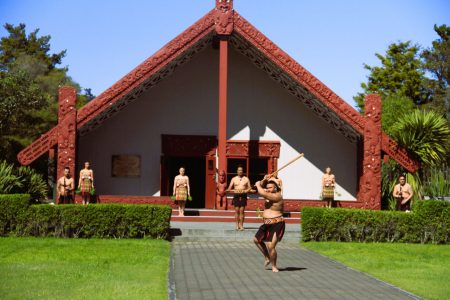
New Zealand has a rich cultural heritage, from Māori traditions to contemporary art. Respectful exploration makes for a more meaningful experience.
Packing Essentials:
- Appropriate Attire: Modest clothing for visiting marae (Māori meeting grounds) and comfortable walking shoes for urban explorations.
- Travel Journal: Capture reflections, experiences, and cultural insights along the way.
- Cultural Guides & Apps: Bring history and art guidebooks or translation apps to enhance your understanding of the places you visit.
Private & Solo Travelers:
If you’re exploring New Zealand independently, pack smart to ensure a safe, comfortable, and rewarding experience.
- Clothing: Pack versatile clothing that can mix and match easily. Choose comfortable, stylish options for both city exploration and outdoor activities.
- Safety Gear: A personal safety alarm or whistle can provide peace of mind when exploring alone. Also, consider packing a portable door lock for added security in accommodations.
- Networking Tools: Download travel apps that help connect solo travelers or local guides. Social media groups can also be great for finding meetups or experiences with fellow travelers.
Final Thoughts from New Zealand Travel guide!
Traveling to Aoteaora is an incredible experience filled with stunning sights and rich culture. By preparing the right paperwork, packing smartly, and following the essential What to Prepare Before Traveling to New Zealand guide, you’ll be well-equipped for an unforgettable adventure. Embrace the stunning landscapes, warm hospitality, and the unique charm of the Kiwi way of life! If you would like to find more about New Zealand small group tours, visit FiveE Travel today: Safe travels!

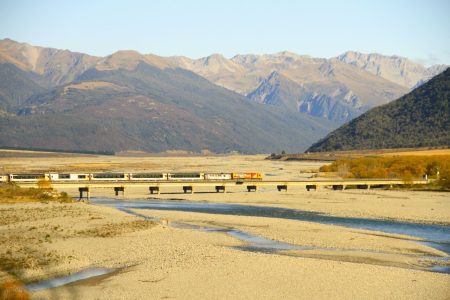

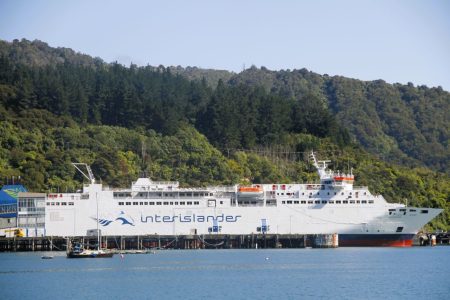
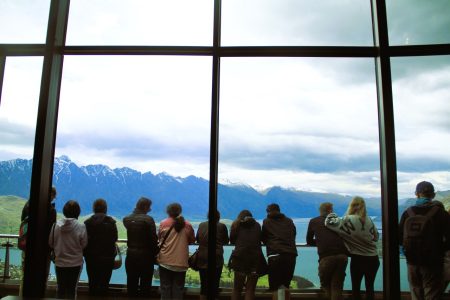
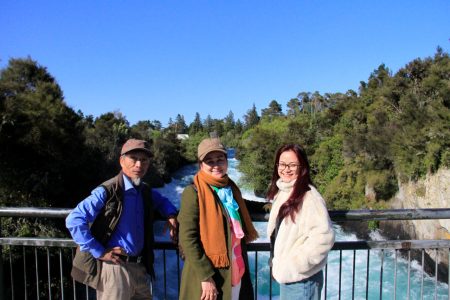
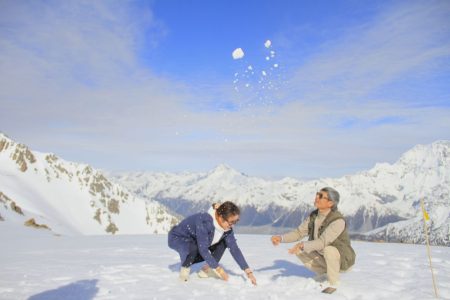
It is in point of fact a great and helpful piece of
information. I’m glad that you simply shared this useful information with
us. Please stay us up to date like this.
Thanks for sharing.
Great post.
Hello to every one, the contents existing at this web site are in fact amazing for people
knowledge, well, keep up the nice work fellows.
Hmm it seems like your website ate my first comment (it was super
long) so I guess I’ll just sum it up what I submitted and say, I’m thoroughly enjoying your blog.
I too am an aspiring blog writer but I’m still new to everything.
Do you have any points for novice blog writers? I’d really appreciate it.
Thank you for your kind words! We’re glad you found this information helpful. We’ll continue to share valuable updates and insights, so stay tuned for more! Feel free to let us know if there’s anything specific you’d like us to cover.